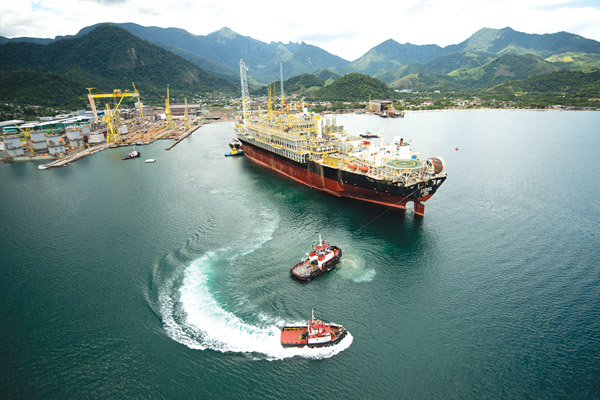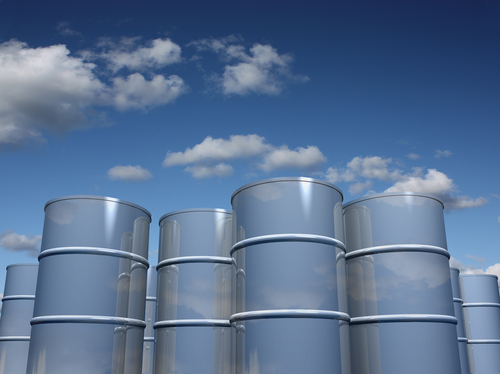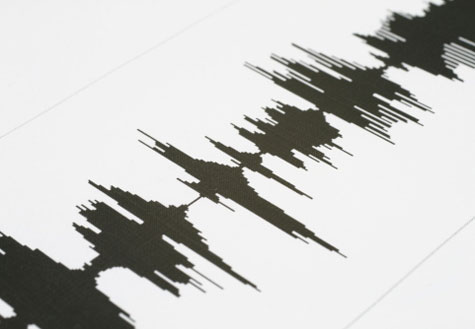BY RIGHTS, the events of 2012 should not have happened: for the seventh straight year Americans reduced their oil consumption, while for the first year since 1859, the U.S. increased oil production by more than 800,000 barrels a day.
For 40 years Americans have fretted about our increasing thirst for oil, declining production, and consequent reliance on oil imports. Suddenly all that has been reversed. Inspired by high fuel prices for oil and gas, and new applications of fracking, (see “The Deluge” ) a drilling boom spans the country.
Last year was really a dual victory: for environmentalists—who supported increases in auto fuel efficiency; and for the U.S. oil industry, which had been hoping to drill its way back to relevance. With such a turn of events, you might think, then, that the two sides could work together. We are at a moment when the two immovable objects of demand and supply have shifted in a positive direction for everyone—and yet the climate is breathing hot air down our necks, and U.S. industry is at a competitive disadvantage because we use more carbon dioxide per dollar of GDP than Europe or Japan. We could combine energy conservation with new supplies to make a win-win. Instead, we are stuck in a bipolar discussion that casts fracking as either a panacea for the economy or as death to the environment.


Frac-o-nomics: More gas won’t guarantee lower prices

Oklahoma earthquakes and the wages of fracking
For investors and policy types, the boom has inspired a new conversation about energy and power, and the possibilities are so glittery they make drilling seem like an imperative. “This was unthinkable five years ago,” says Edward Morse, the lead author of a spring 2012 report by Citibank (pdf) that forecast that the resource boom will remake North America as “The New Middle East” by 2020. According to that report, the coming oil and gas deluge will transform American fortunes, raising GDP by as much as 2 to 3 percent, “re-industrializing” towns whose last manufacturer packed up years ago, and creating about 2.5 to 3.5 million jobs. This optimistic new narrative has been well received by Wall Street and Washington. In the telling, oil and gas are almost magical substances, reestablishing the U.S. as a superpower. “What’s unfolding on the energy side perpetuates U.S. power,” says Morse.
Environmentalists, meanwhile, have largely maintained the rhetorical footing they have held since the Santa Barbara oil spill of 1969—to keep drilling off the East and West Coast and out of the Arctic National Wildlife Refuge. They built an impressive political base, with the basic platform: stop drilling in America. Today, the loudest voices in the environmental community have simply returned to the old favorite. Greenpeace, Friends of the Earth, and other fractivists have dominated the dialogue. In November Yoko Ono and Sean Lennon put up a billboard saying “Imagine there’s no fracking,” and got Lady Gaga, among others, to join them. A poster in upstate New York (where fracking is temporarily banned pending more study of the potential effects on New York City’s drinking water) reads: “Fracking = Death.”
But does fracking really equal death? Or equal jobs?
Neither a mega-boom in jobs nor environmental destruction are the major issues here. Yes, they’re both possibilities—but the chatter about them has overshadowed issues that are far more urgent. The much bigger and more salient struggle is over money and risk and how they’re distributed across the American landscape. To whom will go the spoils of this new boom, and on whose shoulders will the risks fall? Will states, in the absence of strong federal regulation, engage in a regulatory race to the bottom to compete for drilling contracts at the expense of their citizens? Will we be stuck arguing for and against fracking while communities are bankrupted and more carbon pours into the air?
Or will we instead harness this new era of rising domestic fuel production and falling consumption to come up with a new energy strategy for a warming planet—and to shape an oil and gas industry that benefits the average Ohioan, Pennsylvanian, and Californian? While the dialogue around energy concerns itself with hyperbolic possibilities, 1,749 churning drill bits are biting into the American landscape this very week. Should drill bits alone determine our energy and climate policy?
TO BE SURE, the potential for damage from fracking is something to take seriously, but after 60 years of using the technique in hundreds of thousands of wells, there are relatively few cases of groundwater contamination. So few that the EPA’s recent determination that Wyoming groundwater was affected by fracking stands out. A study in Pennsylvania affirms that methane appears to migrate into drinking aquifers—likely because of poor cement seals around well pipes. Though the industry has best practices for the seals, following them is voluntary in some states. I am not trying to imply that fracking is safe, but that its danger depends upon local geology, the competence of the drillers themselves, and—above all—effective regulation.
Which is an environmental issue we should be talking about. Effective regulation can reduce risky practices and encourage drillers to compete on safety rather than costs. Consider the oil tanker: thanks to legislation introduced after the Exxon Valdez disaster, we have dramatically reduced both the number and size of tanker spills. Anytime a tanker is loaded with oil, it runs the risk of a spill, but our high-energy lifestyle depends on our willingness to accept—and manage—these risks. And so tankers and barges now need to carry insurance for unlimited damages from an oil spill. Insurers, who have money on the line, have enforced best practices, which have reduced spills considerably. Yet for the moment, the regulation of fracking is progressing state by state, without the unified routine that was taken with transporters. At the federal level, meanwhile, there have been setbacks: the 2005 energy bill, for instance, exempted gas drillers from parts of federal clean water regulations. The National Resources Defense Council and the Sierra Club have called for better regulation. There is no question that it is needed.
Well-regulated, fracked natural gas could be a plus for the environment—particularly if it were coupled with a ban on coal. The extraction of coal via mountaintop removal is extraordinarily damaging to the environment. Power plants that burn coal emit more radiation into neighborhoods around them than do nuclear power plants, and fine particle pollution from coal-powered plants costs 13,000 lives a year, while producing an enormous quantity of greenhouse gas emissions. Coal, arguably, really does equal death. Fracking is not pretty, but there is more than one principled environmental conversation to have about it.
So what about jobs? The environmental dangers of fracking are uncertain, but forecasts saying fracking will bring millions of new jobs to the heartland are downright improbable. While jobs in oil and gas are increasing, they don’t materialize around wells in the bullish numbers projected. In 2010, for example, state officials in Pennsylvania estimated that shale gas drilling was supporting 230,000 jobs. Bradford County, the most-drilled county in the state, boasted 386 wells opened in 2010. The gas industry spent an estimated $2.4 billion on Bradford’s wells that year, which would have swamped the county’s GDP, at the time around $1.8 billion. But according to a study co-authored by Pennsylvania State University professor Tim Kelsey (pdf), the county appears to have gained just 1,600 jobs, and wages and salaries in the county rose only 2.8 percent between 2007 and 2009. In that same period, the rise in total income tax payments, which could include payments by the gas companies to landowners, was 6.6 percent—hardly a doubling of GDP. The researchers concluded that wherever the bulk of these jobs and money went, it wasn’t Bradford.
Similarly, the 200,000 Ohio jobs promised because of access to the Utica shale deposits are likely to be no more than 20,000, according to Mark Partridge, an Ohio State University professor of rural-urban policy. And most of those jobs may go to people from out of state with experience on the rigs.
“The issue is not jobs versus the environment,” says Nancy White, professor of economics at Bucknell University, “It is: Do the benefits outweigh the costs in these communities?” White says the most important issue is whether oil and gas production are adequately taxed so that local communities can pay for new roads and other services, and develop the local economy to insure themselves against bust when production inevitably falls off. Ninety-six percent of natural gas is produced in states—like Texas, Alaska, Wyoming, and Oklahoma—that have drilling taxes. Pennsylvania does not. Instead, it imposes a small “impact fee,” which essentially saved gas drillers several hundred million dollars last year alone.
IN FACT, OUR HYPERBOLIC national debate about fracking—dominated by employment boom utopians and environmental alarmists—is distracting almost everyone from the sleight of hand involved in state-by-state taxation and regulation. Ohio recently imposed a tax on gas pulled from its abundant shale deposits, but its new tax is one of the lowest in the nation. For their troubles, the locals could get a wellhead about every half-mile east of Columbus. But each drilling site requires between 100 and 1,425 tractor-trailers hauling away wastewater, doing millions of dollars in road damage alone. The environmental plea to “Imagine there’s no fracking” seems like a cruel joke in this end of Appalachia. “Many towns in Ohio have no choice,” says Partridge. “The current laws are set up to incentivize drilling and nobody can hold out. … These are rural, poor, distressed Appalachian communities.”
But it gets worse: rather than revitalizing these towns, the gas boom, when it peters out, will leave many in the lurch. And this will happen faster than most people realize: a shale gas well may produce for 50 years, but 25 to 50 percent of its total output will be extracted in the first two years, with less and less gas being produced every year after that. The boom—such as it is—is now. Ironically, Ohio is giving producers a tax break on their first two years of production, and ratcheting up the tax only later, meaning that the state will fail to capitalize on the greatest production, and that revenues will decline as the cost of cleaning up abandoned wells ramps up.
The vaunted “re-industrialization” of rural America, too, is proceeding on lousy terms for rural Americans. Take the ethane refinery that Shell may build in Pennsylvania. Ethane is converted into ethylene, a component of plastics, so the plant could become a hub for a host of manufacturers. As a result, West Virginia, Ohio, and Pennsylvania competed viciously to offer perks to Shell. In the end, Pennsylvania won by exempting the plant from taxes for 15 years and offering a 25-year tax credit that may be worth more than $1.7 billion. “That Shell plant, that’s a nice thing to lose,” says Partridge. “Pennsylvania paid dearly for it.”
If the boom simply came and went, that would be bad, but oil and gas booms often destroy jobs that have taken generations to build. Between 2007 and 2010, Pennsylvania counties with heavy drilling lost 18 percent of their dairy cows and milk production, while counties with no drilling saw those figures shrink by just 1 percent. More ominously, young men are dropping out of school for those scarce jobs in the gas fields, which could limit their income for decades to come.
So who is benefiting? Rather than revitalizing the heartland, the companies from Texas, Oklahoma, France, and the UK who have invested in Ohio’s shale are the first to reap. Certainly in the case of Pennsylvania, it’s Royal Dutch Shell PLC. Dividends are already flowing to America’s energy centers: Houston, with its miles of corporate headquarters, is expanding to add as much as 5 million square feet of office space, putting the Houston-Galveston area on track to replace Chicago as the nation’s third largest city by 2035. The other major beneficiaries: you and me, because we are paying significantly less for natural gas than we did a few years ago.
WE DON’T NEED a discussion that pits those who want to drill the country like a pincushion against those who would ban fracking outright. What we need is to give some measure of control to the people who live among the wells, and an energy policy that gives us a way to prevent economic and environmental devastation from climate change. We need smarter taxation across the country, and a commitment to open information—listing royalties, taxes, environmental permits, water tests, seismic data, drilling mud and fracking-fluid ingredients, disposal info, and well production rates. Requiring drillers to buy insurance—both to protect homeowners from pollution and to clean up wells after they’re abandoned—could help to enforce best practices across the industry. If we apply ourselves to the problems of fracking the way we applied ourselves to the problem of oil spills from tankers, we could reduce many of the risks.
Instead we have incoherence.
And incoherence—no matter how radical its parts may seem—tends to maintain the status quo.
UC Santa Barbara political scientist Eric R.A.N. Smith reminds me that for the past 30-something years Americans have been against drilling offshore—but only when gas prices were low. The environmental movement has a long, successful history of rallying people against drilling. But the result—because U.S. production was falling and U.S. consumption was rising—was that we turned to countries with fewer regulations for our oil production: Nigeria, Ecuador, Chad. Effectively, we offshored the risks and environmental damage of oil production. When gasoline prices are high, Smith’s research shows, we suddenly support drilling in the U.S. We love the environment, but only when it doesn’t get between our feet and the gas pedal.
What appears to be a principled stand against fracking may be enabling the disenfranchisement of those who live above the wells; in any case, it’s not preventing the boom from happening.
When Colorado State University political scientist Kyle Saunders looks at the politics of the new boom, he sees “a punctuated equilibrium,”—a slow and unsteady move toward a new energy and climate policy. The country doesn’t have consensus on cutting back fossil fuels to protect the climate, Saunders says, so we move in fits and starts forward and backward. That will continue until there’s some kind of crisis—either environmental or economic—that allows one side to take more control.
Citibank’s Morse puts a fine point on it: “We’re a pluralistic government designed to prevent decisionmaking. Pluralism and sharing powers makes for incoherence,” he says. And because no one can make any sudden moves, incoherence makes, ironically, for inertia—i.e., more drilling—which is good for investors. “I like the incoherence,” he adds.
Incoherence may be great for some players in the economy, but it’s a sorry modus operandi for a democracy. Smith lays out the new reality: the 2010 Gulf of Mexico disaster was far larger than the Santa Barbara or Alaska oil spills, but it failed to create legislation or long-lasting political change. “Part of it was the lack of images and part was the speed of the media. In the old days there were fewer issues, fewer channels, and the public would mull over issues longer. Now we churn over issues much more quickly.” In the speed of our political cogitation, we’re a neurotic pile of contradictions, and at the end of the day we fall back on the couch, too exhausted and confused to make changes. Incoherence, after all, allows us to be against fracking while being for the gasoline in our cars and the natural gas in our homes.




